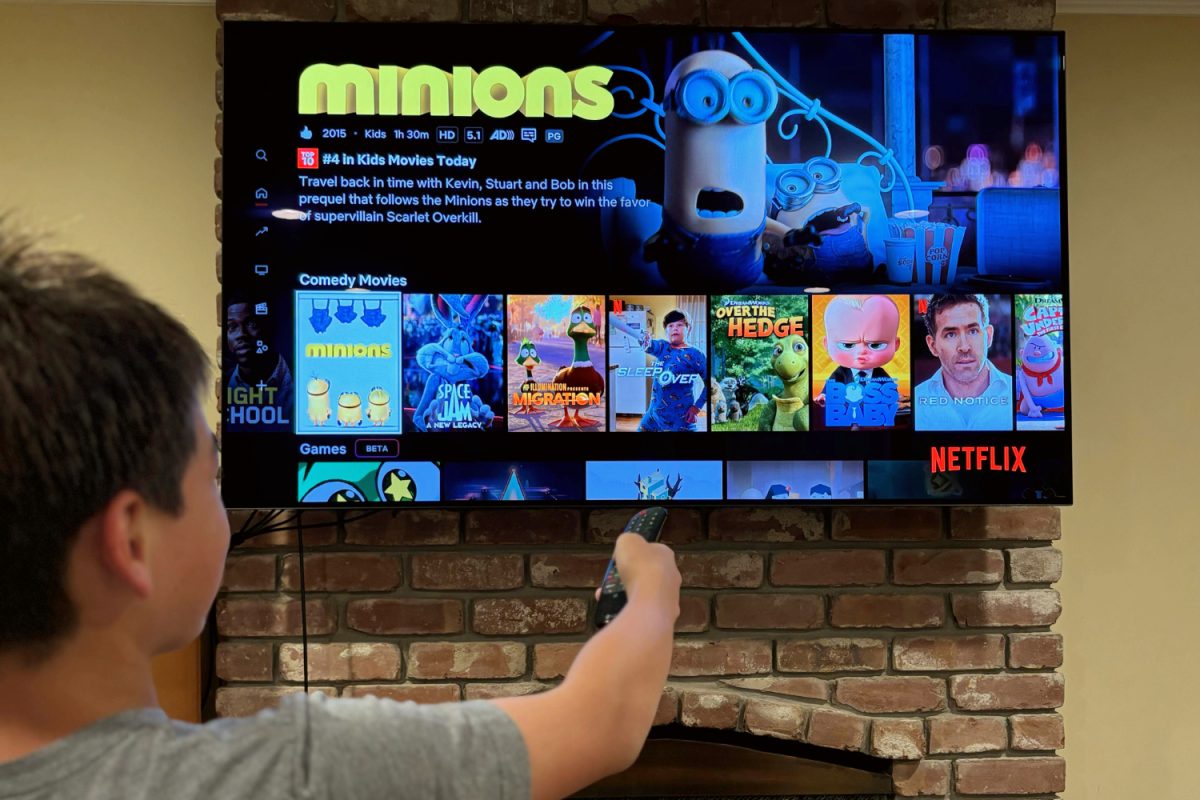Since Netflix’s online streaming debut in 2007, the surge in streaming interest by other companies like Prime Video, Hulu, and Disney+ has significantly transformed the entertainment industry, with movie theaters being no exception.
Streaming services offer a more convenient and cheaper way to watch your favorite shows and movies, allowing you to stay in the comfort of your home without the hassle of travel, disruption to your schedule, or worries of disturbing others.
“Because I have limited time, I prefer to stream at home. It’s a little bit easier because I can talk to people and get up and do something, and not worry about bothering other people,” said Carlmont Chinese teacher Mindy Chiang.
As streaming services gain popularity and attract larger and larger audiences, movie theaters are starting to see a decline in interest. Cinemas have been facing a decrease in ticket sales since about 2002, when Netflix started to pave the way for the many streaming services available today.
However, a recent survey by Roku and National Research Group paints a different picture of how streaming services affect movie theater interest. According to the survey, streaming services have the potential to be great marketing strategies for theaters, and may even be more effective than social media or television.
“As at home streaming advances continue, consumer behavior continues to prove out that streaming and movie theaters are actually complementary, not competitive,” said Cinemark Public Relations Director Caitlin Piper.
The research supports this, providing that 44% of moviegoing streamers would be more interested in purchasing a movie ticket after watching a trailer on a streaming service, in comparison to similar but lower rates in social media’s 43% and television’s 41% interest. In the survey, moviegoing streamers are categorized as people who watch at least one hour of streaming per week and have seen at least one movie in theaters within the past year.
Amid debates about the positive or negative impact of streaming services, there are those in the industry who feel that streaming services do not have any direct impact on movie theaters.
“We believe that we compete strictly for out-of-home entertainment time, not content-watching time,” Piper said. “If I’m looking forward to a night in, you can’t convince me to get out of the house. The same goes for when I’m looking forward to doing something fun out of home.”
Audiences can also see the different appeals of both entertainment methods.
“There’s a kind of coolness about going to the theater and witnessing a newly released movie for the first time on a big screen. But I also see the appeal of staying at home and having good snacks and free choice,” sophomore Dakota Chang said.
Meanwhile, smaller theaters that play less mainstream movies have a different narrative on streaming.
“I think streaming service development impacted us much less than a theater that’s relying on superhero movies and major studio releases,” said Roxie Theater’s Operations Director Kelly Wiggin. “There’s a noticeable fatigue with that kind of moviegoing, where concessions are ludicrously expensive. Then the movie ends up on streaming a month later, so you might as well have just stayed home.”
Even without the struggle of competing with streaming services, there are still drawbacks for a theater not partaking in the showing of the most popular and newest films. As a result, many of these independent nonprofit theaters put in place creative strategies to keep interest and viewing up.
“We do our utmost to give people a reason to leave the house. We deliberately keep our prices as low as we can. We play foreign and local films, classics, obscurities, and things you won’t find elsewhere,” Wiggin said. “We supplement this with live drag shows and live musical performances, and lots of Q&As with filmmakers, artists, and people from our community. We have a huge membership program, which encourages people to come out regularly and get to know each other.”
The growth of streaming services shows little signs of stopping, prompting impending arrivals of more changes to the entertainment industry, whether they may be beneficial to the spirit of in-person theaters or not.
“When you step into a movie theater auditorium, all distractions are removed, and you are able to solely focus in on the story unfolding on the big screen. You have the emotional benefit of laughing, crying, gasping and cheering along with those around you — a truly communal experience,” Piper said.











